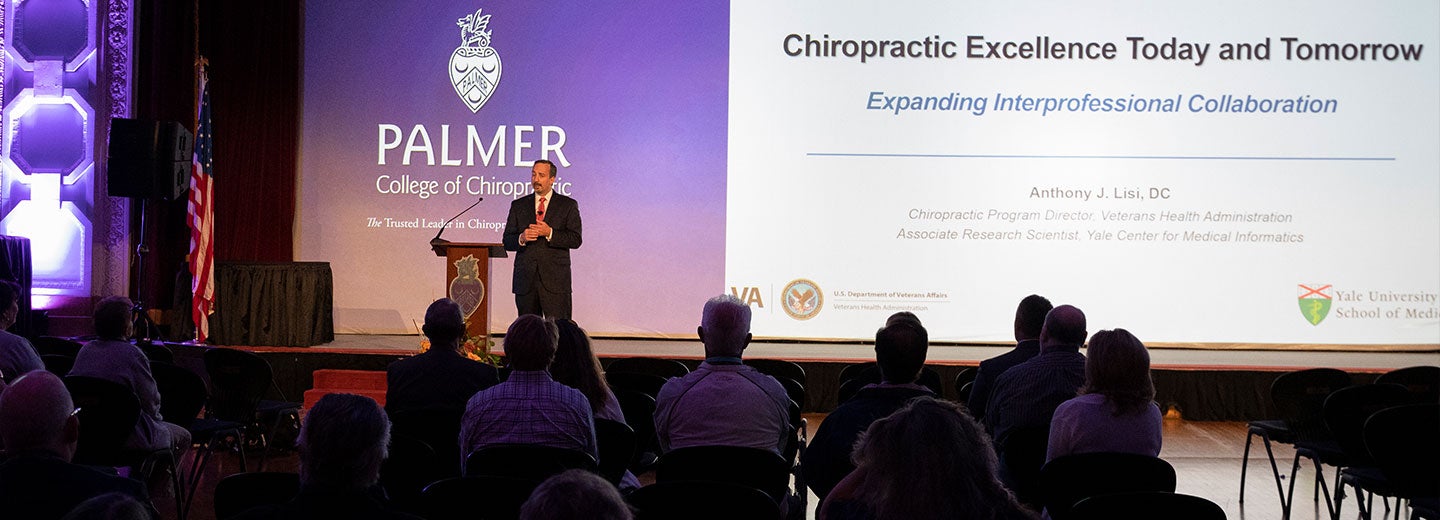Clinical Care of the Chiropractic Sports Patient
April 26, 2025
Palmer College of Chiropractic Main Campus, Davenport, Iowa
Room P206
Check-in begins at 7:30 a.m.
8-10 a.m.
Sports Clinical Session 1
What Did You Do Now? Imaging of Pediatric and Adult Athletes
Tracey Littrell, D.C., DACBR, DACO
Spinal and extremity injuries are common occurrences in amateur and professional sports and many of them are sport-specific and can be divided into two categories: traumatic injuries and overuse injuries. This lecture will review the imaging features of the most common sports-related injuries of upper extremity, lower extremity, and spine, including fractures, ligament injuries, tendinous disorders, and impaction syndromes.
10 a.m.- Noon
Sports Clinical Session 2
Functional Mobility for Athletic Performance
Casey Buns, D.C., CCSP®, CSCS
Hour 1: Current concepts for joint and soft tissue physical mobility will be explored. Learn how to test mobility dysfunction using different evaluation paradigms. Discover what the current research states about the pathophysiology of joint and connective tissue contracture.
Hour 2: Learn to apply concepts for mobility using various manual and active care techniques, programs, and progressions.
Noon-1 p.m.
Lunch provided by Palmer College Continuing Education
1-3 p.m.
Sports Clinical Session 3
Understanding Concussions in Sports: From Symptoms to Systemic Impacts
Bryan Asby, D.C.
Hour 1: In this hour, Dr. Asby will give an overview of concussions in sports. He will define concussion, and discuss mechanisms and pathophysiology. He will describe the physical, cognitive, and emotional symptoms as well as discuss possible red flags.
Hour 2: Dr. Asby will review primitive reflexes and which are commonly found post-concussion. He will also go through cases studies to apply the information and to aid the D.C. in clinical application.
3-5 p.m.
Sports Clinical Session 4
Transitioning from Acute to Chronic Injury: When, Why and How
Kira Baca, D.C.
In this 2-hour lecture, Dr. Baca will discuss common sport injuries that have the potential to transition from acute to chronic cases, the mechanisms for that transition and potential development of chronic pain, including but not limited to unsuccessful management, as well as physiologic and psychosocial causes of chronic pain. Identification, prevention, and/or management of psychosocial and yellow-flag cases transitioning from acute to chronic pain scenarios will be discussed.
5-7 p.m.
Sports Clinical Session 5
Strength and Conditioning in a Geriatric Population
Tanner Kleppe, D.C.
Hour 1: Overview of the geriatric patient and common findings and conditions for that population. Discussion and demonstration quick baseline screening processes and functional assessment.
Hour 2: In this hour Dr. Kleppe will present real life cases. He will review exercise science principles and how to get a patient to progress (meet the patient at their level). He will also explain and demonstrate fall prevention and mitigation, so your patient can avoid injury. This session will be interactive and fun!
Clinical Care of the Chiropractic Patient
June 7, 2025
Clinical Care of the Chiropractic Patient – Stay tuned for more information.

